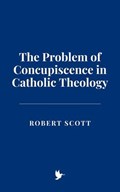This book delves deeply into the theological, historical, and cultural dimensions of concupiscence, a cornerstone concept in Catholic theology, which denotes the inclination toward sin that remains in human nature even after baptism. Spanning twenty chapters, the work provides a comprehensive analysis of the development of the doctrine, its scriptural foundations, and its interpretations by Church Fathers, scholastics, reformers, and modern theologians. It traces concupiscence's role in moral theology, spiritual growth, sacraments, and the eschatological hope of redemption, offering insights into how this condition shapes human identity, freedom, and the journey toward holiness.
The text begins with an exploration of concupiscence in the early Church, with Augustine of Hippo's monumental contributions serving as a foundation for subsequent theological developments. It examines how medieval thinkers like Thomas Aquinas integrated this understanding into a systematic framework, situating concupiscence within broader discussions of nature, grace, and virtue. The book also addresses the divergent interpretations of concupiscence during the Reformation, contrasting Catholic teachings with those of Martin Luther and John Calvin, and examines its reaffirmation by the Council of Trent.
Further, the book situates concupiscence in contemporary contexts, including its intersection with liberation theology, feminist critiques, and ecological ethics. It explores modern scientific perspectives, such as the psychological and neurological dimensions of human desires, offering a dialogue between theology and science. Finally, the eschatological promise of freedom from concupiscence and the role of the Communion of Saints are presented as essential to the Catholic vision of redemption.
By integrating theological reflection with historical analysis and practical pastoral applications, this work offers a holistic understanding of concupiscence. It demonstrates how this doctrine continues to shape Catholic thought and provides a framework for addressing the moral and spiritual challenges of modern life. Ultimately, the book affirms the transformative power of grace in overcoming concupiscence and guiding humanity toward its ultimate fulfillment in God.

